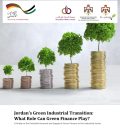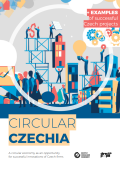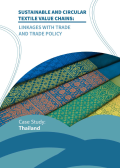
The production of textile and ready-made garment (RMG) in Jordan's industrial zones leads to a lot of solid textile waste. The waste is usually disposed of in landfills, and this is a growing problem. Garments that do not meet the required quality standards and excess stock that goes unsold are also thrown away, causing harm to the environment. However, textile waste can be seen as a valuable resource with lots of potential opportunities on a regional and international scale.
The study aims to find ways to reduce textile and garment waste by identifying opportunities for recycling, upcycling and reusing in the Al-Hassan industrial zone and selected factories within the zone. It builds on previous studies on circularity in the Jordanian RMG sector and develops a list of circularity approaches at the factory and cluster level.
The study is part of a wider project commissioned by the German Federal Ministry for Economic Cooperation and implemented by the Germany development agency GIZ, which supports stakeholders in implementing circularity approaches in the Jordanian RMG sector in cooperation with the Ministry of Environment and the Ministry of Industry, Trade and Supply.
- Business Case 1: Investing in Material-Efficient Technology and Software
- Business Case 2: Mechanical Recycling for Industrial Symbiosis
- Business Case 3 : Mechanical Recycling for Fibre-to Fibre Yarn Production
- Business Case 4: Chemical Recycling for Fibre-to-Fibre Yarn Production
- Business case 5 : Upcycling with Social Entrepreneurs




